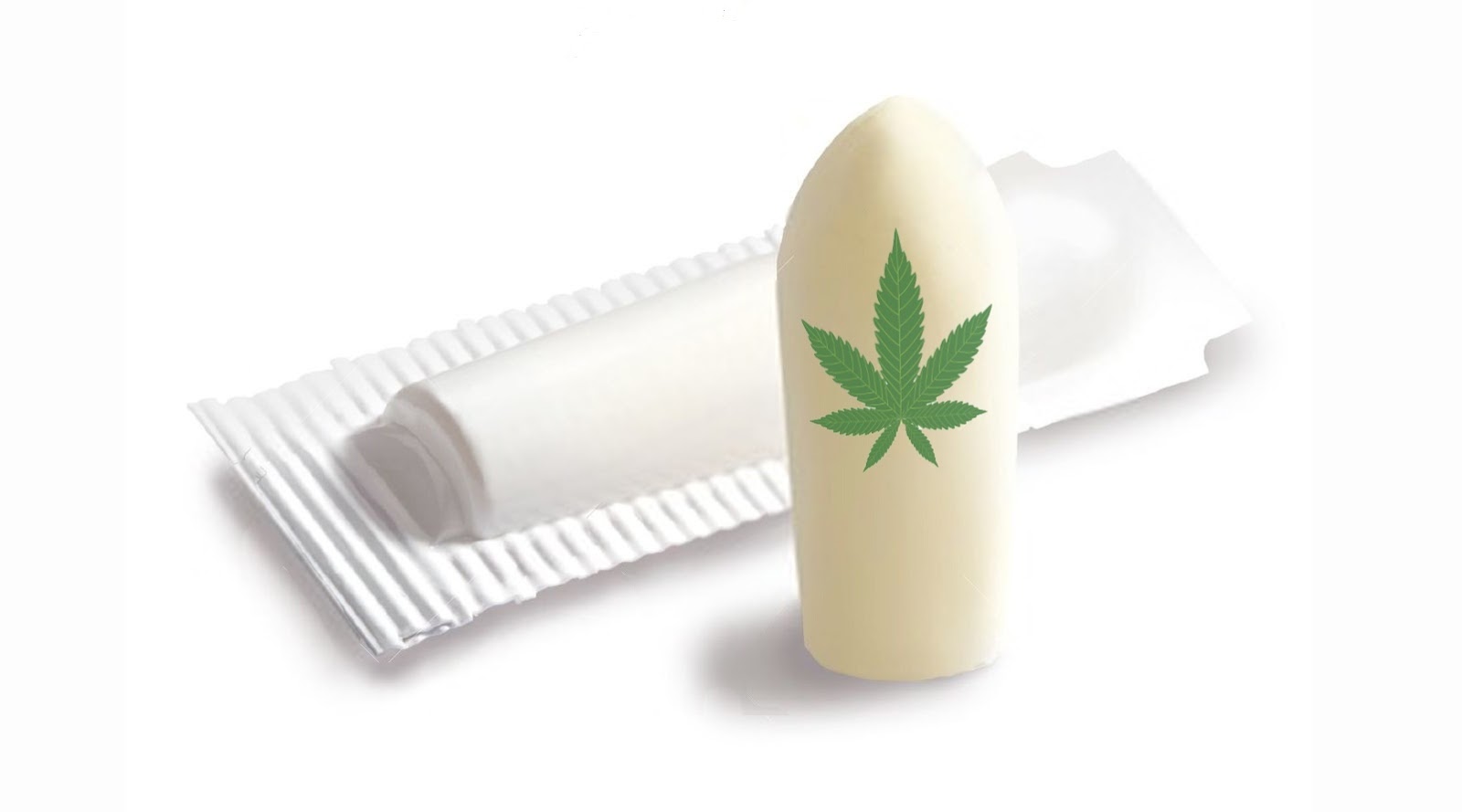EXODUS C-CURE 45-50% FULL SPECTRUM (30’S)
EXODUS C-CURE 45-50% FULL SPECTRUM (30’S)
R990,00
WHY SUPPOSITORIES?
Rectal and vaginal suppositories have both been used to deliver medicine to patients for decades. The pelvic region houses a matrix of nerves that travel to the legs and up the spine, and the colon contains cannabinoid receptors (CB1 and CB2), which mediate many of THC’s effects.
Generally, cannabis suppositories are made by combining cannabis-infused oils in a carrier oil that hardens at low temperatures. Rectal administration of cannabis oil may activate the cannabinoid receptors located there, which could be beneficial for local conditions like hemorrhoids or acute inflammation [6]. The rectum also contains a number of key veins that deliver blood to the entire body, but it doesn’t appear that suppositories facilitate cannabinoid absorption into the bloodstream.
Even if they are only effective locally rather than systemically, suppositories may offer a viable alternative to patients suffering from conditions that render them unable to ingest their prescriptions orally [1]. Issues with palatability, severe nausea or vomiting, compromised esophageal or gastrointestinal tracts, and a range of other symptoms can make oral administration an impossibility for many patients.
Description
The back door is making a comeback – medically speaking.
Cannabis suppositories have grown in popularity, but how and to what extent they actually work remains a mystery. With contradictory claims from proponents and skeptics regarding the rectal bioavailability of THC, intoxication (or lack thereof), and alleviation of symptoms of difficult-to-treat diseases, it’s time to get a grip on what we really know about this method of administering cannabis.
Clinical research on cannabis suppositories is still limited. Much of the available data pertains to experiments conducted on animals, not on people who actually use suppositories. Despite the distinct lack of clinical studies, anecdotal accounts from patients are often very positive. The overwhelming majority of patient reports have one thing in common: a lack of intoxication that’s typically caused by smoking or ingesting THC-rich cannabis.
The absence of a “head high” would seem to indicate that a suppository does not distribute a systemic dose of cannabis – which corroborates initial research findings about limited bioavailability. This suggests that a suppository acts more like a topical with a local effect, rather than a transdermal patch which disseminates medicine systemically through the bloodstream.
WHY SUPPOSITORIES?
Rectal and vaginal suppositories have both been used to deliver medicine to patients for decades. The pelvic region houses a matrix of nerves that travel to the legs and up the spine, and the colon contains cannabinoid receptors (CB1 and CB2), which mediate many of THC’s effects.
Generally, cannabis suppositories are made by combining cannabis-infused oils in a carrier oil that hardens at low temperatures. Rectal administration of cannabis oil may activate the cannabinoid receptors located there, which could be beneficial for local conditions like hemorrhoids or acute inflammation [6]. The rectum also contains a number of key veins that deliver blood to the entire body, but it doesn’t appear that suppositories facilitate cannabinoid absorption into the bloodstream.
Even if they are only effective locally rather than systemically, suppositories may offer a viable alternative to patients suffering from conditions that render them unable to ingest their prescriptions orally [1]. Issues with palatability, severe nausea or vomiting, compromised esophageal or gastrointestinal tracts, and a range of other symptoms can make oral administration an impossibility for many patients.
CLINICAL RESEARCH
A number of studies have called into question the rectal bioavailability of THC. In a 1985 study, researchers found no circulating levels of Δ9 THC in blood plasma after rectal administration of THC. According to University of Mississippi pharmacologist and researcher Dr. Mahmoud ElSohly, this means that in commercially available formulations THC is not absorbed into the bloodstream via the rectum at all.
ElSohly claims that any cerebral intoxication experienced using cannabis suppositories is a result of the placebo effect rather than the activation of the CB1 cannabinoid receptors in the brain – which is what makes us feel high from THC.
Interestingly, a later study showed that a chemically modified version of THC, called THC-hemisuccinate (or THC–HS for short), is bioavailable in the rectum. Succinate, an intermediate compound in the breakdown of sugar, is slightly water soluble, which allows it to be absorbed through the rectal mucosa. It was first synthesized at ElSohly Laboratories, Inc. Unlike regular THC, THC from the hemisuccinate ester was found to easily permeate and absorb into rectal mucus membranes [7], then enter into circulation as Δ9 THC. As a result, most of the THC avoided first-pass metabolism and did not transform into its more psychotropically potent metabolite, 11-hydroxy-THC, in the liver [5].
The results from a follow-up 1996 pilot study support the idea that THC–HS administered rectally could result in improvement in symptoms of spasticity, rigidity, and pain, while producing no measurable differences in cardiovascular function, concentration, and mood of the participants – in other words, without signs of measurable intoxication.
Most recently, in 2018, ElSohly and his team found that the concentration of Δ9 THC in blood plasma after rectal administration of a THC–HS suppository was about 70-80% bioavailable, almost 2.5 times higher than an orally ingested THC capsule. While there were no reports of intoxication for the test subjects, the paper states that first-pass metabolism was “greatly reduced,” although not eliminated entirely. This means that some slight psychotropic effects from the 11-hydroxy-THC could still be possible with THC–HS formulation, but more studies are necessary to confirm this.
ElSohly’s research could have significant implications for cancer patients and others suffering from conditions that may require very high doses of cannabinoids but who are unable to smoke or ingest their medicine. THC–HS, however, is a patented molecule and can only be prepared with a license from the University of Mississippi.
PAIN RELIEF AND PLEASURE
Cancer patients* and people with compromised upper alimentary tracts will likely have to wait some time before THC–HS formulations become commercially available. Meanwhile, THC and CBD-rich suppositories are currently being sold in state-licensed cannabis dispensaries.
Ben Odell, content director at Foria Wellness, a cannabis producer based in California and Colorado, says that the best way to conceptualize the effects of suppositories is by imagining them as powerful topicals – except they are applied internally. Just as externally applied topicals interact with cannabinoid receptors in the skin, rectal suppositories are aimed at nerve endings and cannabinoid receptors in colonic tissue.
“Everyone is debating and discussing rectal absorption of THC, and whether [cannabis oil extracts] and other formulations are absorbed into the bloodstream or not. But we’re not interested in getting people high,” says Odell. Instead their focus is on creating products that alleviate pain and discomfort in the lower body, as well as products that enhance intimate pleasure.
Foria initially launched their mixed THC:CBD ratio rectal suppository as a sexual aid. “We were hearing from our friends in the queer community that a lot of people use nasty chemicals to relax the anal sphincter before sex — things like ‘poppers,” Odell told Project CBD. The idea behind the new product line is that THC and CBD could help mitigate painful localized inflammation and relax smooth muscle tissue – like the involuntary muscle tissue of the internal sphincter [9]. Odell says that customers and Foria staff have been experimenting with cannabis suppositories for relief of other lower-body issues, like cramping, inflammation, and pelvic discomfort – with good results.
Foria also produces a high-CBD suppository and a high-THC formula for vaginal application. Odell reports that feedback regarding THC-rich suppositories has been far more positive for pain relief than the CBD line. This summer Foria will be partnering with Harvard neuroscientist Dr. Staci Gruber to conduct a study that will track women’s responses to CBD suppositories.
WHO CAN BENEFIT?
Whether or not cannabinoids are absorbed into the bloodstream from the rectum, many suppository enthusiasts report powerful, localized, non-psychotropic effects for a range of middle and lower body afflictions.
ANAL SUPPOSITORIES
Men and women have reported using rectal suppositories to treat anal fissures, hemorrhoid inflammation, digestive issues, Crohn’s and IBS, sciatica, restless leg syndrome, lower back pain, prostate issues, and post-operative pain. Rectal suppositories are also being used for lubrication to mitigate pain during anal intercourse.
VAGINAL SUPPOSITORIES
Vaginal suppositories have been used to ease menstrual cramps, abdominal pain, endometriosis, pelvic discomfort, post-coital pain or inflammation, vaginal dryness and pain with intercourse, as well as for relaxation and sexual enhancement.
Of course, dosing via the vagina or rectum is not as simple as taking a puff or swallowing a pill (lest we forget about gravity). Cannabinoids are tricky molecules and there’s still much to learn scientifically and pragmatically about the efficacy of various delivery systems, including cannabis suppositories.
Thus far, clinical studies have shown no rectal bioavailability of unadulterated THC [2,7]. And while it’s plausible to speculate that cannabinoids could have an effect via local pathways in the colon and elsewhere, those pathways haven’t been studied yet. Although many anecdotal reports are positive, there are some significant discrepancies in observed efficacy [9]. Far more research is needed to better understand exactly how this method works (or doesn’t).
But there’s no need for patients to wait until all the results are in. If you’re curious, suppositories could be worth a try. You probably won’t get a “head high,” according to the legendary Tommy Chong, who uses cannabis suppositories under a doctor’s supervision. Though you might feel a little “butt high,” Chong says with a smile, which is not necessarily a bad thing.




Reviews
There are no review yet.